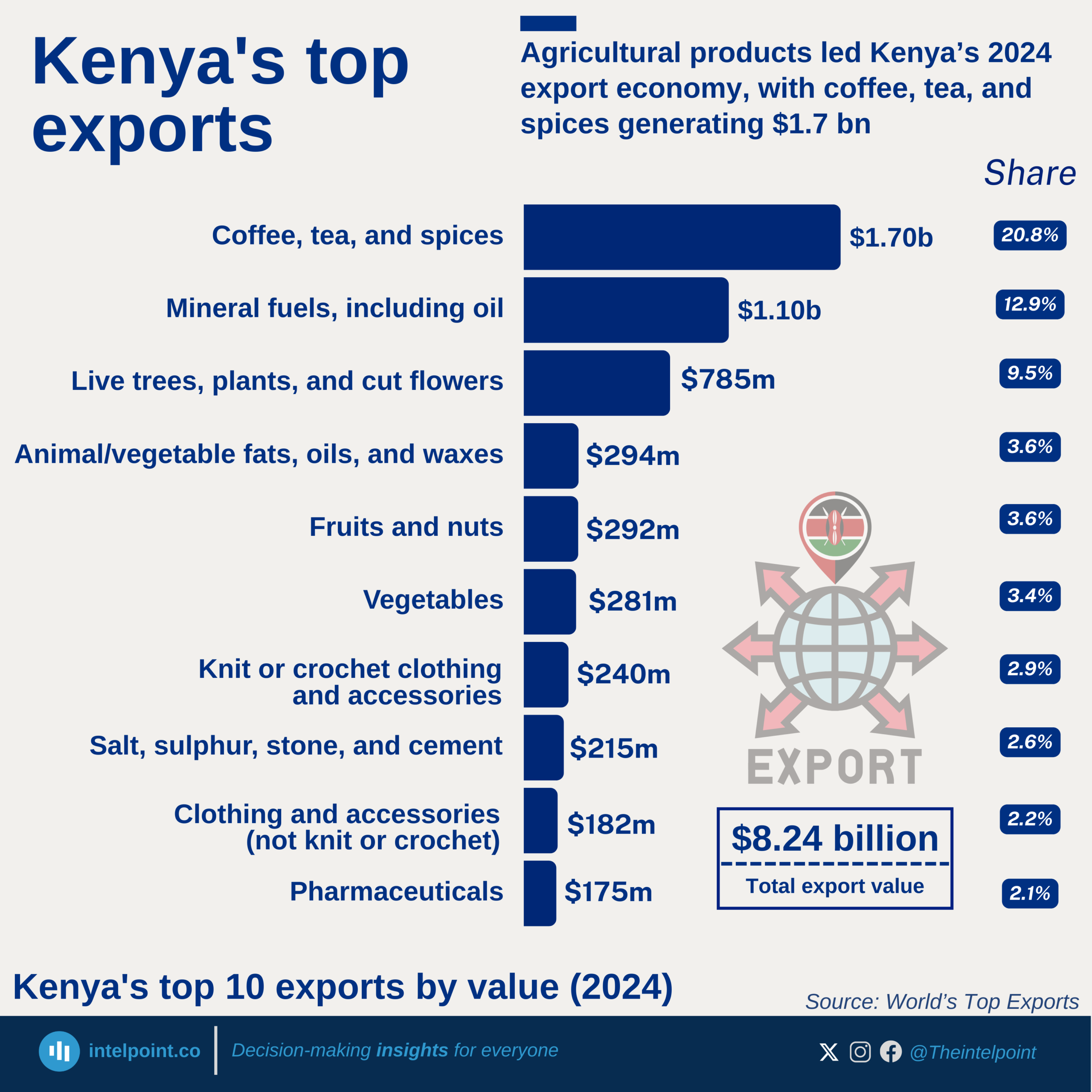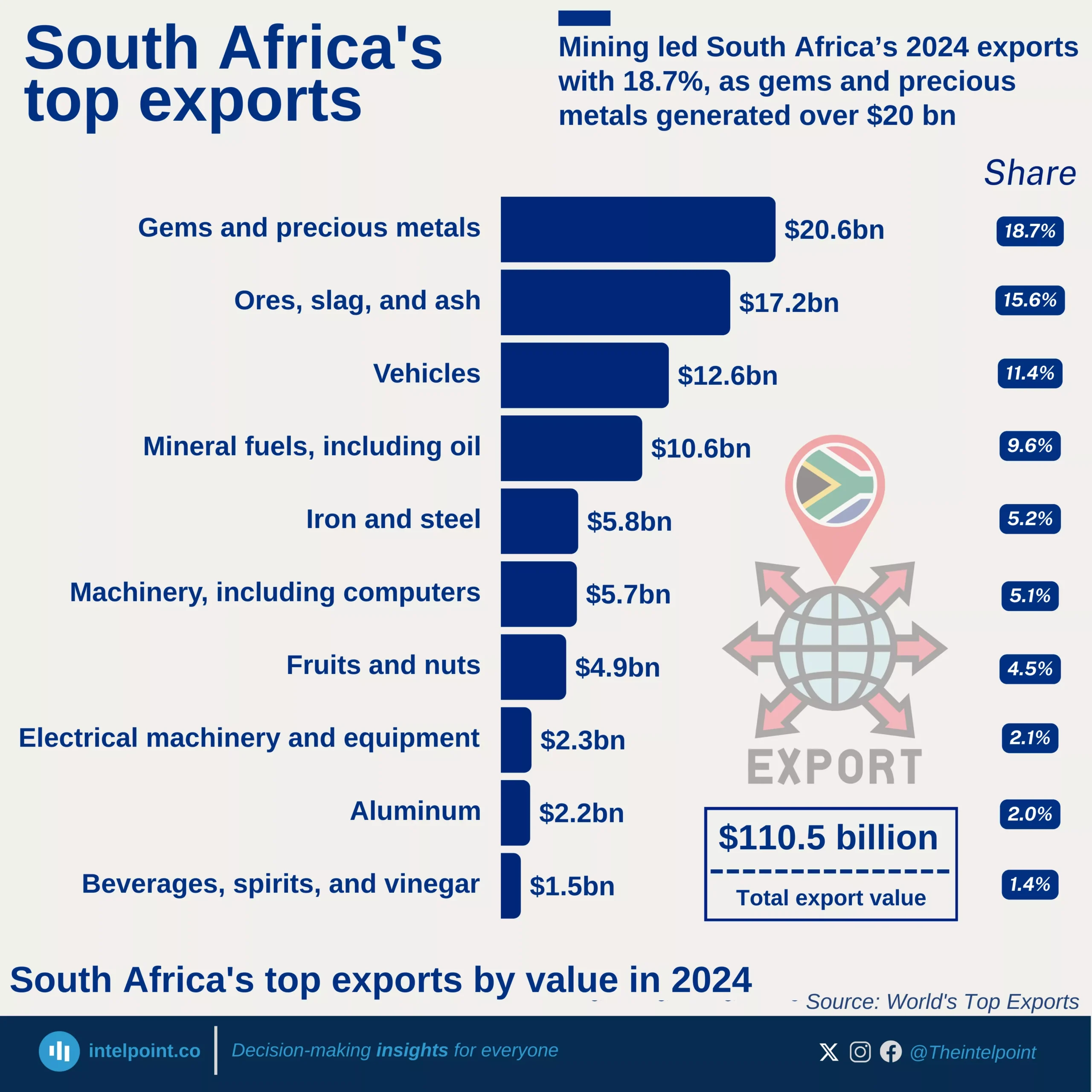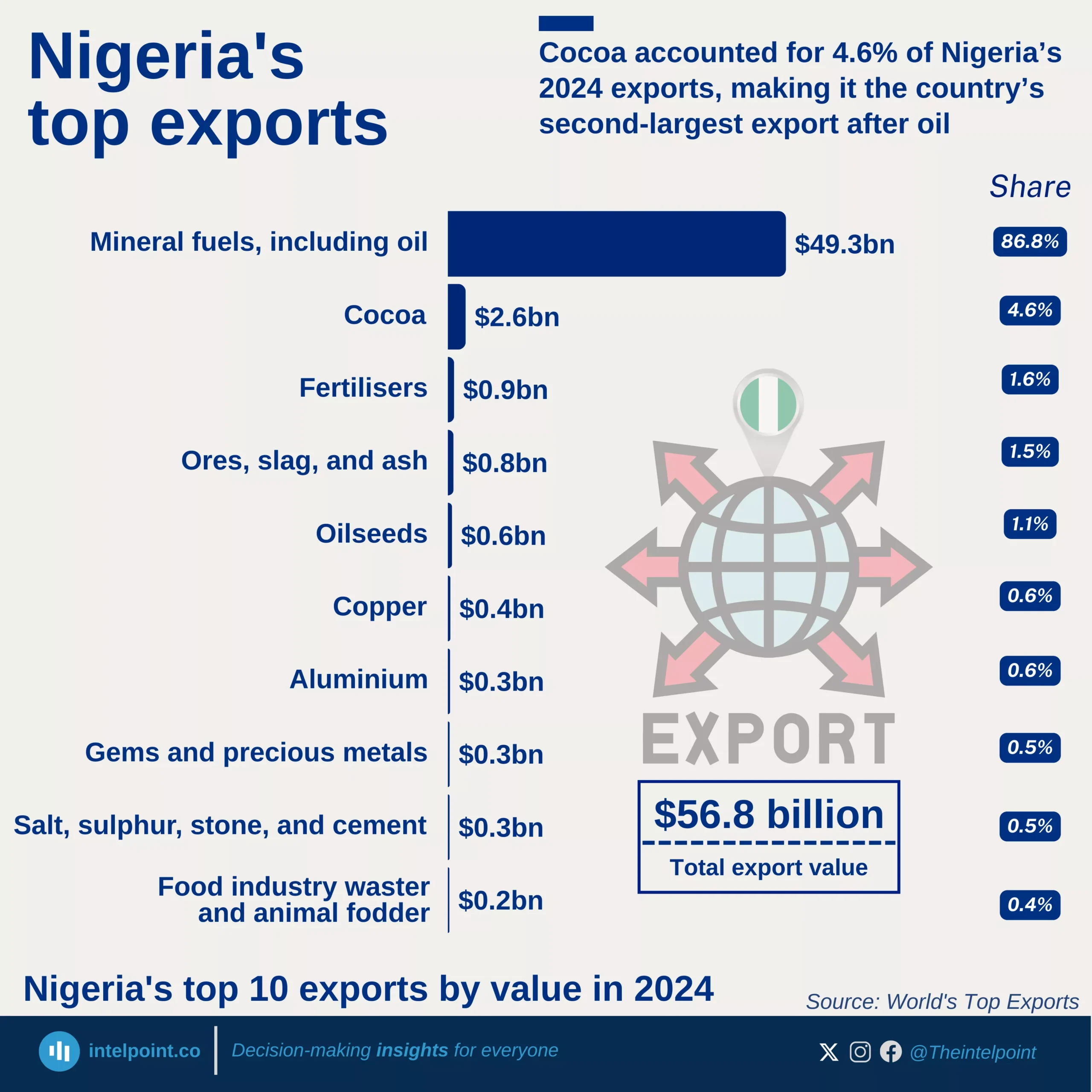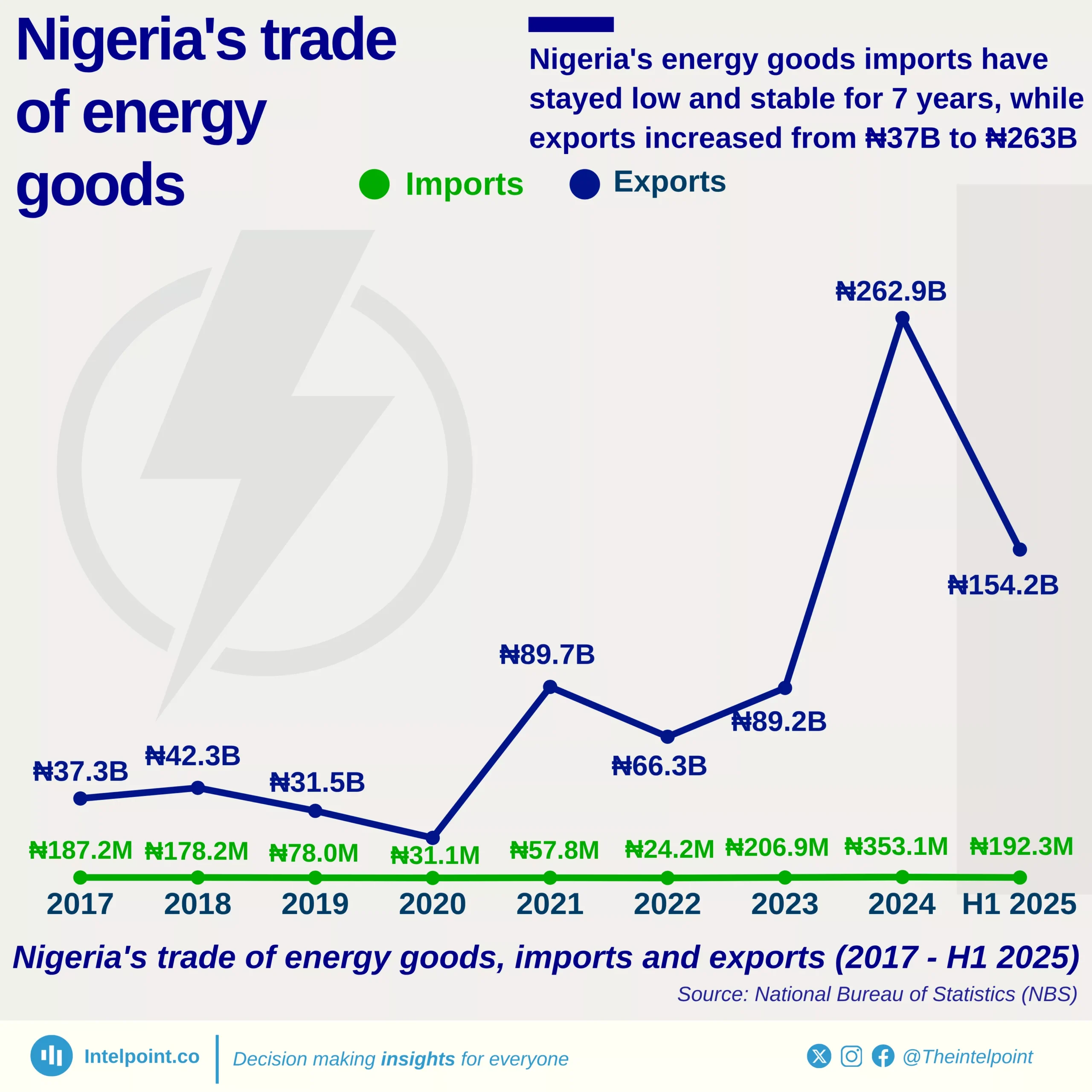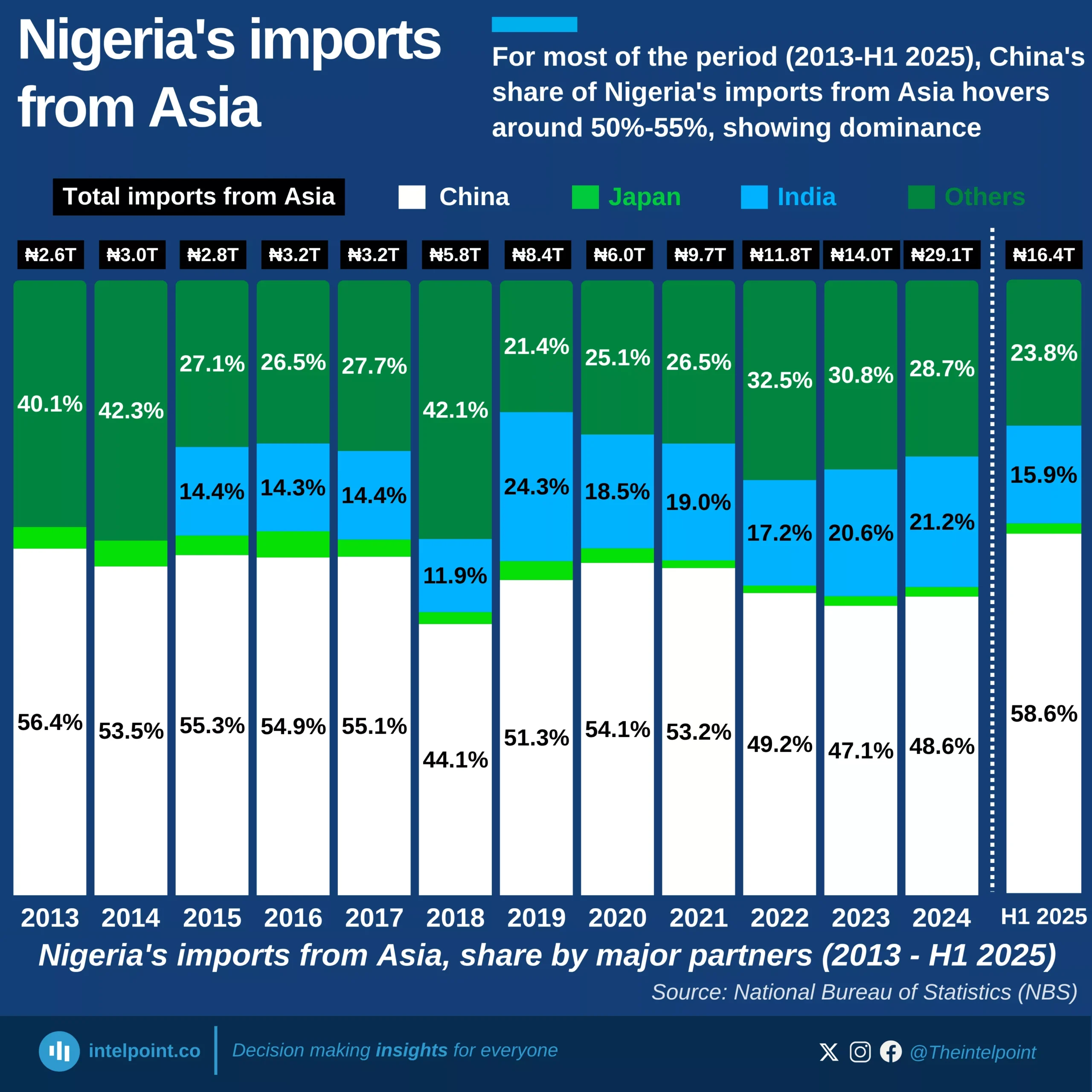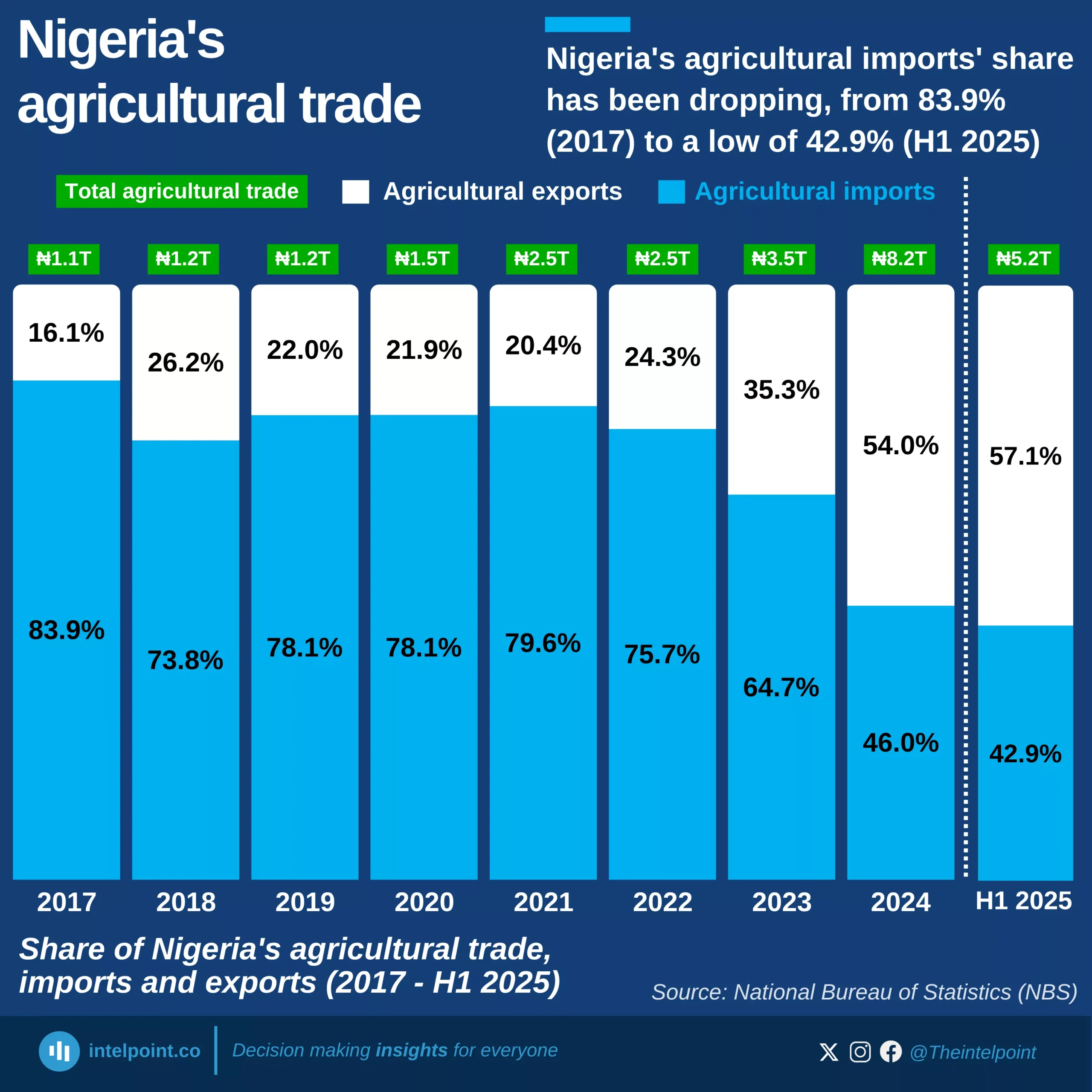Nigeria's agricultural exports soared to ₦1.7 trillion (approximately $1.079 billion) in the first quarter of 2025, marking a significant 64.65% increase from Q1 2024. This impressive growth was largely driven by cocoa exports, which brought in over ₦1.2 trillion, primarily from standard and superior quality beans shipped to the Netherlands and Belgium.
Other strong performers included cashew nuts (₦158 billion) and sesamum seeds (₦128 billion). There was also notable growth in semi-processed goods like natural cocoa butter and soya flour. Additionally, non-traditional exports such as cut and ornamental flowers, along with frozen shrimps and prawns, showed increasing diversification, contributing to an expanding export base beyond a few core commodities.
This strong performance in Q1 2025 highlights Nigeria's growing momentum in the global agricultural market, signalling improved market penetration and a critical step toward economic diversification.
